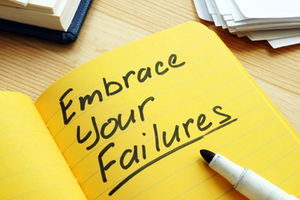
Writer: Brian Ssenoga Kimuli. PHOTO/FILE/COURTESY
In contemporary Uganda, the reaction to the failures of prominent figures, be it politicians, business leaders, or celebrities often leans toward mockery and derision. This ‘cultural response’ to failure raises important questions about how society approaches setbacks and what lessons can be learnt from those who fall.
The American leader Louis Farrakhan once stated, "When you see men fall, don't laugh, learn. Because you’re on your way up. And the things that tempt people to fall, you and I are not free from that temptation nor from the weakness that will cause us to stumble and fall."
These words challenge a culture that too often finds amusement in the failures of others rather than using those moments as opportunities for growth.
One stark example of this tendency occurred at the 2017 World Cross Country Championship in Kampala. Ugandan athlete Joshua Cheptegei, staggered to the finish line in a race that many believed he would dominate. Some even suggested he was "under a spell," highlighting the ridicule he faced.
Yet, Cheptegei's career took a remarkable turn after this moment, with him later becoming a world record-breaking long-distance runner. His journey shows that public failure can be a stepping stone to success and personal growth.
Historically, failure has been a universal human experience, crossing cultural, social, and economic divides. Despite this, there is often a perverse pleasure in watching others fail, especially when it involves those in high positions of power. Rigid social hierarchies often fuel resentment, leading to mockery when influential individuals falter. This societal attitude towards failure can be damaging. It reduces opportunities for introspection and stifles empathy, making it harder for others to learn from these experiences.
The instinct to mock failure may be rooted in deeper insecurities or envy, but it has damaging consequences. When society ridicules people who take risks or occupy leadership roles, it discourages others from stepping up. Individuals may fear that their efforts will be met with derision rather than support, leading them to abandon their ambitions or refrain from innovation. This not only hampers individual growth but also undermines the collective progress of society.
As Louis Farrakhan wisely suggests, we should take the opportunity to learn from others' mistakes, asking ourselves what we can take away from these downfalls. What lessons can be learnt from the experiences of others? How can we avoid similar pitfalls? By shifting our focus from mockery to learning, we contribute to a culture of empathy and understanding.
When we learn from the mistakes of others, we create an environment that values growth and empathy, rather than one that punishes vulnerability. Embracing this mindset encourages individuals to take risks, pursue leadership, and innovate. Acknowledging that everyone, regardless of their status, faces challenges allows us to approach failure with curiosity and understanding.
To foster a culture of learning, society must engage in meaningful dialogue when leaders or individuals make mistakes. Instead of ridiculing them, we should ask critical questions: What led to this decision? How could the situation have been handled differently? What insights can we gain from this? This approach not only deepens our understanding of leadership but also promotes a more compassionate society.
Recognising that failure is a necessary part of success empowers individuals to face challenges without fear. Rather than viewing failure as a personal flaw, we should see it as an essential component of the growth process. When people are not paralysed by the fear of falling, they are more likely to push forward, armed with the lessons from those who have come before them.
As Uganda continues to navigate challenges of leadership in politics, business, media, sports, and beyond, it is essential that the cultural response to failure shifts.
By embracing vulnerability and learning from both our own experiences and those of others, we can build a society that values resilience, growth, and collective progress.
*The writer, Brian Ssenoga Kimuli, is a journalist and public health professional.







